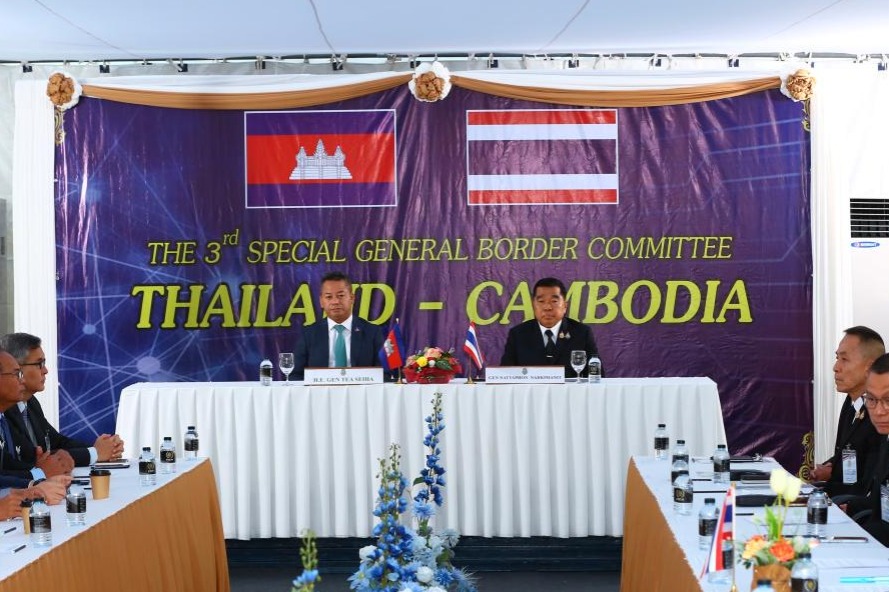Big power creates crises, then profits from chaos


The world is beset by the Russia-Ukraine conflict and its cascading spillovers.
The Ukraine issue involves complex historical veins as well as various factors brought about by the current crisis. Western experts had long ago warned of risks that could arise from the United States-led NATO's eastward expansion against Russia.
However, ignoring Russia's legitimate security concerns and breaking the promises of former Western leaders, a certain powerful country punched Russia into a corner by launching NATO's five-round extension of more than 1,000 kilometers toward the Russian border. And this finally lit the fuse to the powder keg.
Rather than putting out the fire and ending the war, that country is doing just the opposite. Before the conflict, it hyped the possibility of a hot war and offered Ukraine a large number of weapons. During the crisis, it has not made efforts to ease the situation or promote peace talks, but rather delivered even more weapons to Ukraine to fuel the tension. Worse, it imposed extreme unilateral sanctions on Russia alongside its allies, gumming up the global supply and industrial chains and further dragging down a world economy already hit hard by the COVID-19 pandemic.
Creating crises, shifting blame and exploiting chaos to reap profits are usual tactics of the superpower to practice its hegemony. Just recall what it did to the Federal Republic of Yugoslavia in the 1990s, to Afghanistan and Iraq at the beginning of this century, and to Libya and Syria over the years.
When the Ukraine crisis broke out, that big power pledged to provide over $1 billion in aid to Ukraine.
But in fact, a considerable portion was spent on ammunition, channeling huge sums into the military-industrial complex.
The sanctions against Russia have stirred the global stock market and driven up the prices of oil, gas and commodities, hitting the global economy and trade as well as the livelihoods of people around the world.
But the superpower's energy giants are making a fortune during this time, with their liquefied natural gas exports up 16 percent month-on-month in March-a record high-and more than 60 percent of the total being shipped to Europe.
Russian assets have bottomed out and a large amount of international capital has flowed to the certain power, making its stock market roar and financial consortiums richer. The world has again witnessed the country's selfishness and hypocrisy.
Yet another puzzle is that it is often other countries, even allies of the certain country, that pay for disasters. History has shown that Europe's interests have been compromised by the superpower more than once-last time in Afghanistan and this time in Ukraine. Facing the war in Ukraine, it is Europe that has borne the brunt and faces a security dilemma. The natural gas price in Europe is skyrocketing and European people are taking a beating. The continuous influx of Ukrainian refugees has also placed a heavy economic and social burden on Europe.
European Union countries need to see clearly the "offshore balancing" trick of the superpower country, upgrade their strategic autonomy, and stop "pulling chestnuts out of the fire" for the country, which is the way forward for Europe to protect its interests.
While provoking conflict between Russia and Ukraine and perplexing the European situation, the certain power has not ceased to upset the Asia-Pacific by peddling the so-called "Indo-Pacific strategy" and showing its muscles in the South China Sea and the Taiwan Straits.
Conflict and confrontation are in no one's interest, and peace and security are the most valuable assets of the international community. China believes that dialogue and negotiation is the most realistic way to resolve crises. We hope that all parties involved in the Ukraine conflict can exercise restraint and support all diplomatic efforts that help the peaceful settlement of the crisis.
Asia-Pacific countries, as stakeholders in global stability, should learn lessons from the Ukraine conflict, maintain the region's hard-won peaceful and stable development, and resist with high vigilance any attempts at stoking bloc antagonism and creating instability in Asia.
We must not allow Cold War mentality to be revived in Asia, and we must avoid small and medium-sized countries in the region becoming tools or even victims of major power games.
China will work with other Asia-Pacific countries to build a balanced, effective and sustainable regional and global security architecture and play a more constructive role in the peace and stability of the region and beyond.
The author is commissioner of the Ministry of Foreign Affairs of the People's Republic of China in the Hong Kong Special Administrative Region.

































